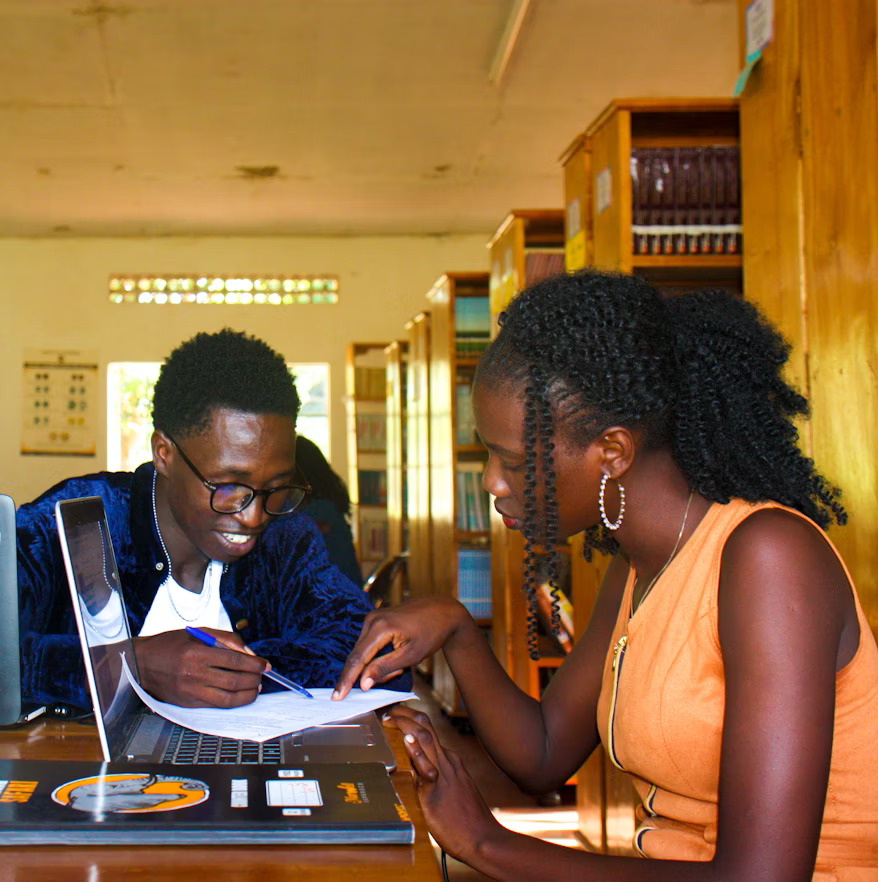Research Programme
African Trajectories: Past Dependencies and New Directions (2025–2029)
 The African Studies Centre Leiden’s new Research Programme 'African Trajectories: Past Dependencies and New Directions' builds on its former programme 'Strident Africa' (2019–2025), extending the recognition of Africa’s pivotal role in world affairs. The continent’s global significance has become increasingly visible.
The African Studies Centre Leiden’s new Research Programme 'African Trajectories: Past Dependencies and New Directions' builds on its former programme 'Strident Africa' (2019–2025), extending the recognition of Africa’s pivotal role in world affairs. The continent’s global significance has become increasingly visible.
The COVID-19 pandemic revealed both the interconnectivity of the world and the persistence of inequalities disproportionately affecting Africans. Simultaneously, African leaders are asserting agency in geopolitics, reshaping relations with former colonial powers, and forging stronger ties with China, Russia, Turkey, and others.
Africa’s importance also extends beyond politics. With the world’s fastest-growing and most youthful population, it is also of central demographic relevance to the world and its future course – not only by its sheer numbers, but also in terms of labour force, creativity, the number of adherents to world religions, consumer markets, etcetera.
Many African countries are among the most vulnerable to the potentially devastating effects of climate change. At the same time, Africa appears uniquely positioned to leapfrog into decarbonisation, thanks to renewable energy potential and critical mineral reserves vital for global energy transitions. These dynamics bring opportunities but also risks of exploitation, conflict, and resource grabbing.
While in the Global North official development aid budgets are shrinking, African citizens and diasporas increasingly question colonial continuities in global and national governance structures, including the international finance architecture, and push for a seat at the table and political change, both in their host and home societies.
The ASCL tasks itself to understand these contemporary phenomena. The ASCL research programme is built around four interconnected themes: 1) Global reconfigurations; 2) Peace, conflict and security; 3) Care; and 4) Resources and future economies.
1. Global reconfigurations
We are currently witnessing important global reconfigurations that have their manifestations and effects in the political, economic, social and cultural domain. These reconfigurations are being studied from an Africa-based long duree perspective, and with an emphasis on how Africans are co-shaping these developments.
Research will focus on ties forged and facilitated by education and migration, transnational businesses in agriculture, infrastructure and (green) energy, cultural expressions, and new communication technologies and AI. We will analyses how these influence inequalities, connections and disconnections, and help shape the current multipolar world from Africa.
2. Peace, conflict and security
Africa’s global connections and the youthfulness of Africa’s population come together in research on conflict on the African continent. Africa’s rich endowments of natural resources have historically attracted many international actors, resulting in high political and economic competition. While the opportunities raise hopes for a better future among African youth, frustrated aspirations for social mobility, access to education, the impact of natural disasters and global geo-political dynamics fuel tensions and conflict. Political narratives and (media) expressions contribute to these in diverse ways.
While many conflicts have deep roots and leave deep wounds, and as such mean continuity of the past, continuous shifts in actors, alliances, technologies and narratives also instigate new directions of conflict. This simultaneously forces us to explore how they may open new pathways towards resilience, peace and security.
3. Care
This field of inquiry emphasises practices, politics, and cultures of care and taking responsibility in the domains of cultural heritage, health and the environment.
Preservation of existing and creation of new heritage in language, literature, culturally embedded knowledge and architecture is an important practice of care linking the past to the future. Research activities in this field include archival research, ethnography of e.g. oral traditions, vernacular texts, and pamphlets, as well as the historical, linguistic and educational perspectives on African (sign) languages.
The care for the health of people is another important domain of research – that includes the use of new technologies in the provision of health care, care in contexts of conflict and precarity as well as epidemiological developments including local drug abuse. Research focuses on global health beyond the bio-medical, including justice, fairness, and inclusion, as for example is advanced in the Leiden University Network on Global Health in Africa (LUNHA) research agenda.
4. Resources and future economies
In the years to come, population growth and climate change will contribute to an increasing pressure on land, water and mineral resources, including those needed for the green energy transition. This raises important questions on the long-term environmental, social and economic impact of mining and the future dynamics in resource extraction, including (air) pollution and toxicity in African mining sites and cities, as well as the interdisciplinary methodologies to understand these. Research will also study sustainable pathways to food security and the challenges and opportunities for employment through value chain development, green technology and private sector engagement, for example in transport and innovation.
Research under all themes adopts a critical approach to (the politics of) global knowledge production, furthering the debate on decolonisation and African Studies.
Photo credit: Makmot Robin via Unsplash

